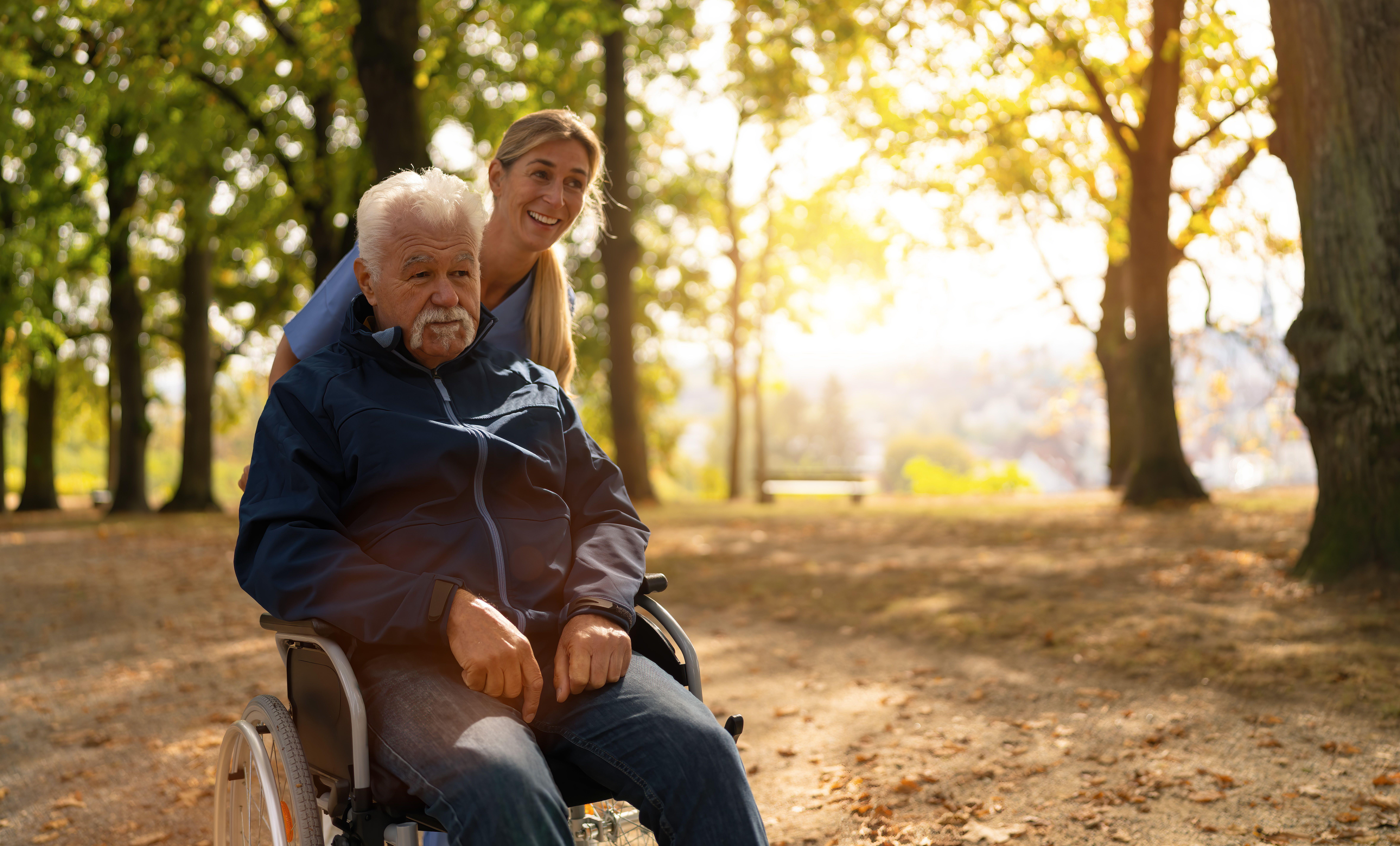Stepping into the role of caring for a loved one with Alzheimer's often happens without warning, profoundly reshaping daily life in unforeseen ways.
From navigating the complexities of memory loss to adapting established routines and relationships, the experience proves both deeply emotional and physically demanding.
Yet, beneath the quiet resilience of caregiving lies a crucial, often overlooked truth: prioritising the well-being of another necessitates safeguarding one's own.
Ahead of World Alzheimer’s Month, we spoke to some experts from Dementia UK and Alzheimer’s Society who have shared helpful advice about how to navigate the delicate balance between supporting a loved one with Alzheimer’s and maintaining your own mental, emotional and physical wellbeing.

Access support and help that is available
One of the most important things you can do for your wellbeing to reduce stress is to access any support you may be eligible for.
“It’s really important to let your local GP, council and social services know about your caring role so you can access any schemes, support or services that they offer,” says Helen Metcalfe, admiral nurse at Dementia UK.
Angelo Makri, senior knowledge officer at Alzheimer’s Society, agrees and adds: “If you meet certain eligibility criteria, the local authority may pay for your support – even if the person you are caring for is paying for their own care (self-funding).”
Acknowledge your feelings
“One of the most difficult things about caring for a person with dementia can be the range and strength of emotions you experience,” highlights Makri. “Being aware of your feelings can make it easier to deal with them.”
Many carers experience “carer burnout,” and Metcalfe emphasises the importance of recognising its warning signs.
“It’s important to recognise the symptoms of burnout – such as exhaustion, tearfulness, [being] physically unwell – so that when you feel yourself getting towards that crisis point, you can have things in place to help you,” says Metcalfe.
Try to schedule in some regular time to exercise

“It’s very important to stay active, whether that is going for a walk, swimming, doing yoga or joining a local exercise class,” says Metcalfe. “There’s a lot of research that show just how beneficial exercise can be, in terms of releasing endorphins and boosting mood and health. Exercise classes are great because they have that social side as well.”
The admiral nurse also highlights how being active outdoors can be particularly beneficial.
“I think spending time in nature and being outside is great for your wellbeing,” says Metcalfe. “It gives your body time to recharge and reset and can be a really good emotional tool.”
Open up to friends and family
Bottling up your feelings can be harmful over time, so don’t be afraid to share your emotions and experiences with friends and family.
“It’s important to have conversations with other family members to let them know the experience of your reality and the stresses in your life,” says Metcalfe. “Opening up might also give them the opportunity to take on some some of that responsibility as well.”
Join a local support group

“I often speak to people who feel like they are very much alone with the symptoms that they’re experiencing from their loved one with dementia, and have not met anybody else who’s experiencing that,” says Metcalfe.
However, joining a support group can change that.
“The nice thing about support groups is that people are able to get together and share their experiences,” says Metcalfe. “They can also share techniques or approaches or communication that really help them manage their loved one’s symptoms, and tips and tricks on how they manage their own wellbeing too.”
Take breaks where you can
“It’s OK to have five minutes out, as long as you know that the person living with dementia is going to be safe,” says Metcalfe. “Don’t be afraid to just kind of step outside for five minutes and focus on your breathing.
“Try some breathing techniques and just have a moment of mindfulness and relaxation to let your body reset, and then go back into that situation with a fresher mindset. ”
Prioritise sleep
“Sleep is our body’s way of recharging and getting ready for the day ahead,” says Metcalfe. “If you’ve had a poor night’s sleep, it can affect your emotions and ability to care. So, sleep is very important.”
But, Makri recognises that this may not always be possible.
“It’s important to try to keep to a regular sleep pattern if possible. However, people with dementia often wake up or get up at night which can make it difficult for carers to get enough sleep and you may need help from another carer at night,” notes Makri.
Be kind to yourself
“Nobody is perfect, and everyone gets frustrated at times and makes mistakes,” says Makri. “Dementia is a complex, unpredictable and progressive condition. This means things can change slowly over time. This can make it hard to be aware of how much relationships and feelings have changed too.”
For any questions or concerns about looking after yourself as a carer or any other aspect of dementia, contact Dementia UK’s Admiral Nurse Dementia Helpline on 0800 888 6678 or email helpline@dementiauk.org.
The fruit that can play a key role in getting a better night’s sleep
The 6 signs your sleeping pattern is out of sync – and how to fix it
Researchers say your ability to catch up on sleep may be out of your control
Man diagnosed with life-threatening illness after symptoms dismissed as asthma
Your morning coffee is putting pep in your step — and making you happier too
How a good ‘6-6-6’ could be what finally helps get you into shape







